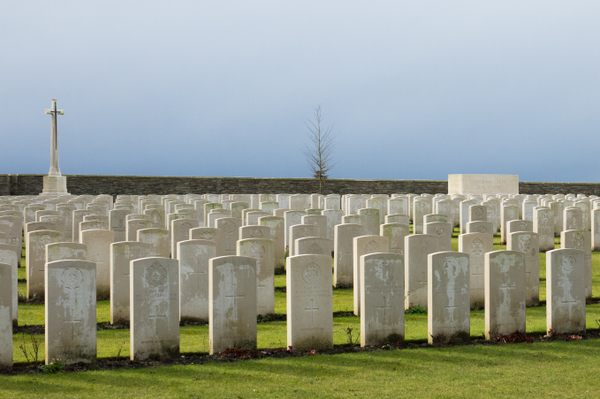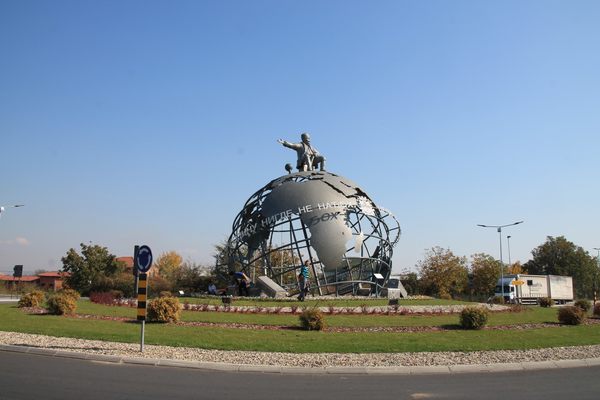The Birthplace of 'In Flanders Fields'
The site where one of the most famous poems of World War I was composed is preserved to honor the legacy of the work.
The First World War gave birth to some of the most moving poems ever written. Soldier poets such as Siegfried Sassoon and Wilfred Owen recorded their horrifying ordeals using the written word. But perhaps the most poignant report of all was written by a Canadian physician, Lt. Colonel John McCrae, in a piece called, “In Flanders Fields.”
The poem was written during the second battle of Ypres in 1915, when the Germans used chlorine gas for the first time. McCrae was working at a Canadian field dressing station on the front line for the wounded. It was here that his friend Alexis Helmer was killed by artillery in front of him. McCrae noted that amidst all the shellfire and destruction the only things which survived were the red poppies and skylarks flying overhead. McCrae composed the poem after Helmer’s funeral but the story goes he wasn’t satisfied with it and threw it away. A member of his unit retrieved it and convinced him it should be published, and he sent it to the English satirical magazine Punch, where it appeared in December 1915.
The poem became hugely popular in Britain and was widely used to generate support for the war. McCrae didn’t survive the war, dying in 1918, but his legacy lived on; the red poppy became the symbol of remembrance and is still worn to this day as a tribute to those who died.
Today the spot where McCrae watched his friend die has been preserved with a memorial, and the field stations where he tended the wounded have been left untouched. There is a bronze plaque with his poem on it attached to the cemetery where 1,200 Commonwealth soldiers are buried; a tiny fraction of the 70,000 killed, wounded or missing who fought at the Second battle of Ypres in 1915, and who are honored in McCrae’s poem.
In Flanders fields the poppies blow
Between the crosses, row on row,
That mark our place; and in the sky
The larks, still bravely singing, fly
Scarce heard amid the guns below.
We are the Dead. Short days ago
We lived, felt dawn, saw sunset glow,
Loved and were loved, and now we lie
In Flanders fields.
Take up our quarrel with the foe:
To you from failing hands we throw
The torch; be yours to hold it high.
If ye break faith with us who die
We shall not sleep, though poppies grow
In Flanders fields.
- John McCrae, 1915
















Follow us on Twitter to get the latest on the world's hidden wonders.
Like us on Facebook to get the latest on the world's hidden wonders.
Follow us on Twitter Like us on Facebook